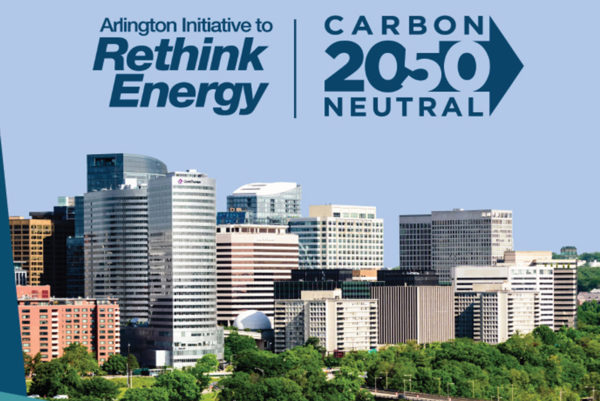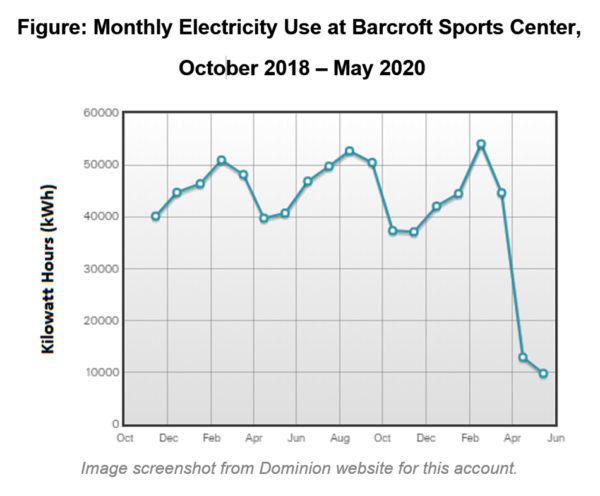This regularly-scheduled sponsored column is written by the Arlington Initiative to Rethink Energy team (AIRE). This county program helps you make smart energy decisions that save you money and leaves a lighter footprint on the environment.
Air pollution is down across Virginia and the rest of the country, due to much lower personal traffic on roadways. You have undoubtedly noticed lighter traffic in Arlington.
The Metropolitan Washington Council of Governments recently reported that traffic in the region had decreased by over 50 percent in late April, and VDOT data shows similar results. The same VDOT site shows even greater reductions during rush hour along Route 29 and I-66 in Arlington.
Similarly, energy use in buildings is down overall in the past two months, with many commercial and institutional properties closed or operating at a fraction of their usual use. Natural gas use is down with the mild spring, and electricity use is down sharply with lower occupancy and mild weather.
Savvy property managers have adjusted accordingly to control costs, shutting off unneeded equipment and setting thermostats back to “unoccupied” settings. As you might expect, Arlington County government has also seen sharp reductions in energy use in community centers and libraries.
Care is taken to not completely shut the buildings off — it is important to maintain proper humidity levels to avoid indoor air quality problems. Emergency lighting and other essential equipment prevent energy use from truly “flat-lining”, but curves like the one below warm the heart of an energy analyst.
Energy managers and planners are seeking insights into how we might maintain some of the energy and cost savings — and reduced pollutant emissions — once society resumes full operation after the COVID pandemic.
Meanwhile, many residents have seen an increase in energy and water bills from staying at home. More cooking, more heating or cooling may be driving household bills up. It may be difficult to assess because COVID hit as winter ended, and the need for air conditioning has been slight thus far. What have you seen in your home energy bills since March?



